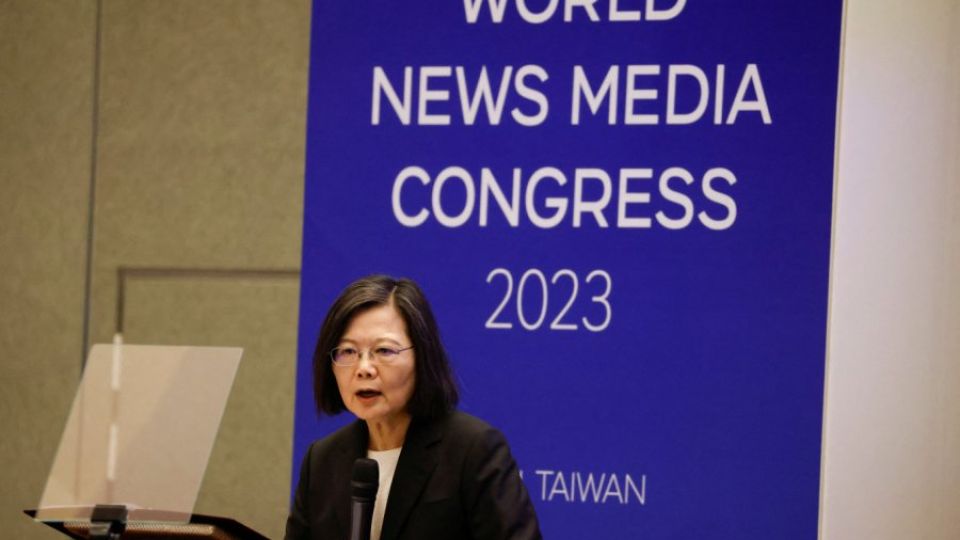June 30, 2023
JAKARTA – Taiwan’s President Tsai Ing-wen said growing disinformation had become the most difficult challenge for democracies, and the rise of artificial intelligence (AI) would allow propaganda by authoritarian forces to be generated and distributed at an unprecedented rate.
“They progressively promote the narrative that democracy has faltered and is inefficient, therefore, the less democratic option will be adopted,” she said on Wednesday, in her opening speech at the WAN-IFRA World News Media Congress.
Lauded as the top democracy in Asia, Taiwan has faced increasing military pressures from China as its relations grow closer to the United States. Beijing has started to launch military exercises near the island since then-US house speaker Nancy Pelosi visited Taipei in 2022.
The military drills continued in April after Tsai met US House Speaker Kevin McCarthy in California.
Taiwan ranked first in Asia and 10th among 167 countries and territories observed in the Economist Intelligence Unit’s Democracy Index 2022. Japan and South Korea trails behind, ranking 16th and 24th, respectively, in the global ranking.
In the first world news congress in Asia after the COVID-19 pandemic, Tsai called on news and media publishers to play a greater role in fighting disinformation and propaganda by any forces that threaten democracy.
“This effort requires all participants in civil society to act together,” she said.
She added that instead of limiting, restricting, controlling or even prohibiting the free flow of information, the media and civil society must respect people’s rights and give them the opportunity to make their own decisions.
Read also: Tech industry allowing ‘deluge’ of misinformation: RSF
With democracy under threat, renowned journalist and Nobel laureate Maria Ressa said the courage of journalism determined the fate of humanity, and journalists must work with other groups in society to win “the battle for facts.”
“Every newsroom has pulled out fact-checks, but they don’t spread on social media because they are too boring […] You have to share those boring fact-checking, and you have to do it with emotion,” she said.
The CEO of Rappler also said she had experimented on this idea with #FactsFirstPH, a social movement in which news organizations in the Philippines work with businesses, churches, filmmakers and cartoonists to spread the results of fact-checking.
“We have to go more. We have to go beyond journalism. It has to be a whole-society approach,” she said.
Read also: G7 should adopt ‘risk-based’ AI regulation, ministers say
She explained that the approach forms a pyramid structure: The first layer is fact-checking by journalists and media organizations and the second layer is “the mesh,” which comprises civil society and creative groups that distribute the facts in a massive and powerful way. The third layer is research, in which all the data gathered in the previous layers and its impact are analyzed. The fourth layer is accountability where lawyers are involved to defend the facts.
“You don’t have rule of law if you don’t have integrity of facts. So, lawyers are [on the top of the pyramid]. They are more aggressive than those exhausted journalists at the bottom,” she said.
Ressa added that while it was daunting, all the efforts are critical to fight misinformation and authoritarian regimes.
“If you face jail like I do, like I still do, when you need to ask for permission for travel, you have to keep trying,” she said.
Read also: AI rules are not for OpenAI to decide, Altman says
A veteran journalist, Ressa has been prosecuted and jailed after running investigative reports and vocal criticism of former president Rodrigo Duterte. In 2021, she won the Nobel Peace Prize along with Russian journalist Dmitry Muratov.
In January, she and her media company Rappler were cleared from all tax evasion charges.
Ressa, however, still faces other criminal cases, including a cyber libel conviction currently on appeal and therefore is required to ask the Supreme Court for permission to conduct international travel.


